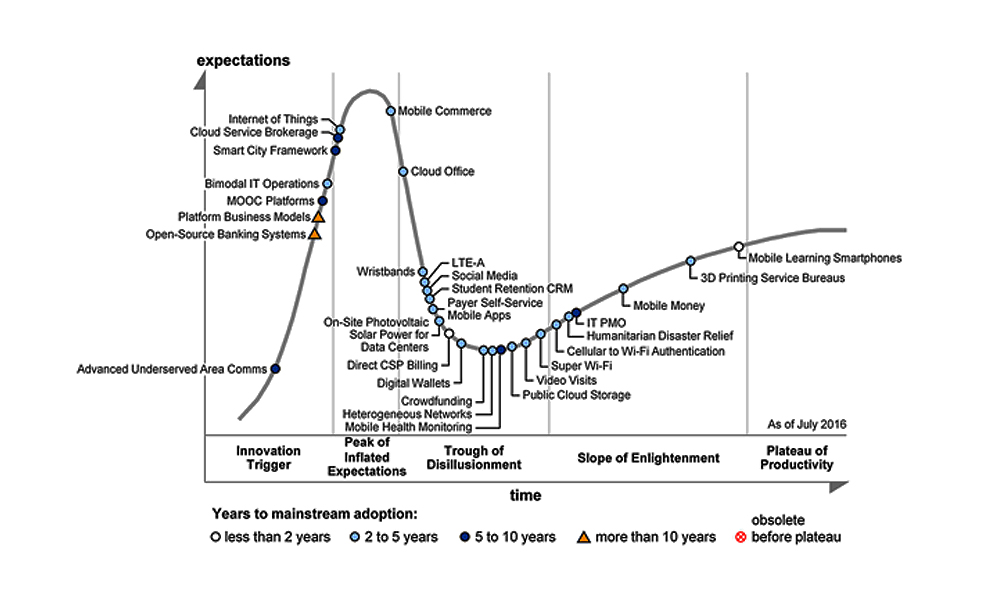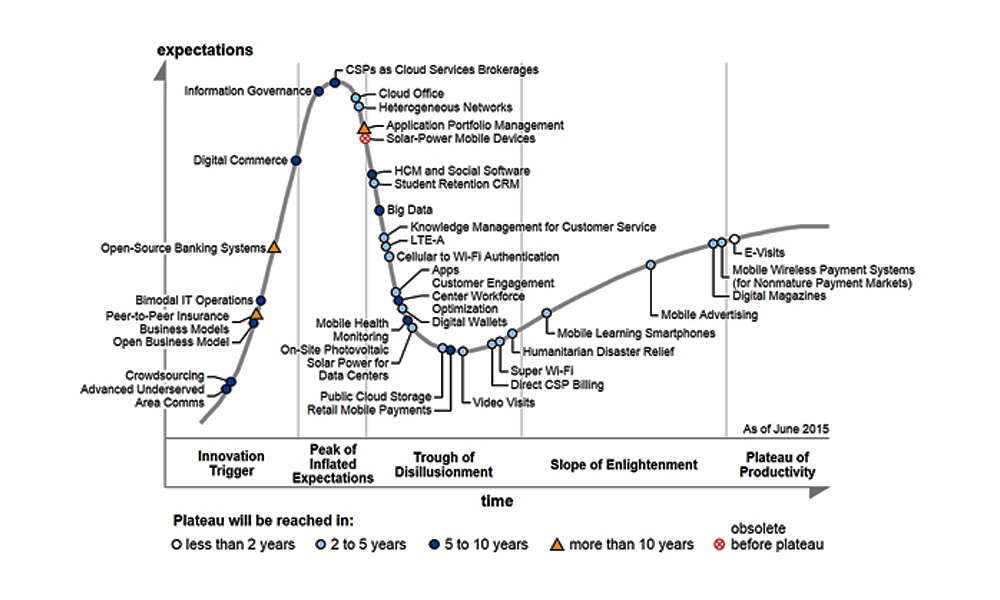According to Gartner’s 2016 hype cycle for Africa, Advanced Underserved Area Comms, which is an entrant on the rising slope of the hype cycle, may be the next big business driver. With the proliferation of Advanced Underserved Area Comms into semi-urban and rural parts of Africa, Gartner expects Advanced Underserved Area Comms to have a transformational business impact in Africa during the next five to ten years. Mobile telephony will also continue to evolve in Africa, with further penetration by ultra-low-cost mobile devices in the next two years.
“They could prove a powerful force for reducing the digital divide, which is one of the biggest social issues in Africa. They could also be significant enablers for the increasing number of organisations looking to benefit commercially from the large opportunities offered by low income Africans,” said Jeff Mann, Research Vice President at Gartner and Conference Chairman at Cape Town Symposium 2016.
The Internet of Things will reach mainstream adoption in the next two to five years in Africa and is expected to have the most transformational impact on local businesses in the same period, according to Gartner’s 2016 Hype Cycle in Africa.
“The level of interest in, and the pace of adoption of, ICT in Africa are increasing, and, although Africa’s insurance sector is small, it is a key indicator of where IoT opportunities exist and will prove long-lasting,” said William Hahn, Principal Analyst at Gartner. “A growing number of insurers are seriously evaluating how the IoT might best be used, especially in terms of improving the customer experience.”
The primary usage scenario for the IoT in Africa’s insurance sector, initially, will be a charging scenario, in which connected things are monetised. For example, drivers will be charged premiums based not only on how far they drive, but also on how safely they drive and the degree of risk associated with when and where they drive,” said Hahn.
Although challenges to widespread IoT adoption remain, a lack of access to end-user devices and policyholder concerns about data privacy, for example, in the long term IoT data, combined with advanced analytics, will give insurers much greater insight into the risks their policyholders face.
“This will present insurers in Africa with opportunities to prevent losses before they occur, and prompt them to act to prevent risk, which could increase customer engagement and loyalty, and thereby reduce churn,” said Hahn. In addition, 11 technologies that will reach mainstream adoption in two to five years will have a high business impact in the continent in the same period. Among them is cloud office.
Cloud office includes email, instant messaging, file sharing, conferencing, document management and editing, and collaboration capabilities. “Cloud office is becoming more mature, and enterprise adoption in Africa, as well as across the rest of the world, is growing,” said Mann. Gartner estimates that cloud office adoption will double from 15% in 2016 to 30% by the end of 2018.
“Companies in Africa and all around the world are opting for cloud delivery in the desire to reduce costs, redeploy IT staff, encourage simplicity, and provide more functionality to users more quickly,” added Mann. “It is important that organisations look beyond a like for like deployment that focuses only on recreating previous on-premises functionality in the cloud, and investigate the unique capabilities of cloud products to improve efficiency and provide innovation.
“All medium-sized and large organisations in Africa must decide about cloud office deployment, even if they decide not or not yet to opt for it,” added Mann.
Gartner’s 2016 Africa Hype Cycle
On the rise
- Advanced Underserved Area Comms
- Open-Source Banking Systems
- Platform Business Models
- MOOC Platforms
- Bimodal IT Operations
At the peak
- Smart City Framework
- Cloud Service Brokerage
- Internet of Things
- Mobile Commerce
Sliding into the trough
- Cloud Office
- Wristbands
- LTE-A
- Social Media
- Student Retention CRM
- Payer Self-Service Mobile Apps
- On-Site Photovoltaic Solar Power for Data Centers
- Direct CSP Billing
- Digital Wallets
- Crowdfunding
- Heterogeneous Networks
- Mobile Health Monitoring
- Public Cloud Storage
- Video Visits
- Super Wi-Fi
Climbing the slope
- Cellular to Wi-Fi Authentication
- Humanitarian Disaster Relief IT PMO
- Mobile Money
- 3D Printing Service Bureaus
- Mobile Learning Smartphones






